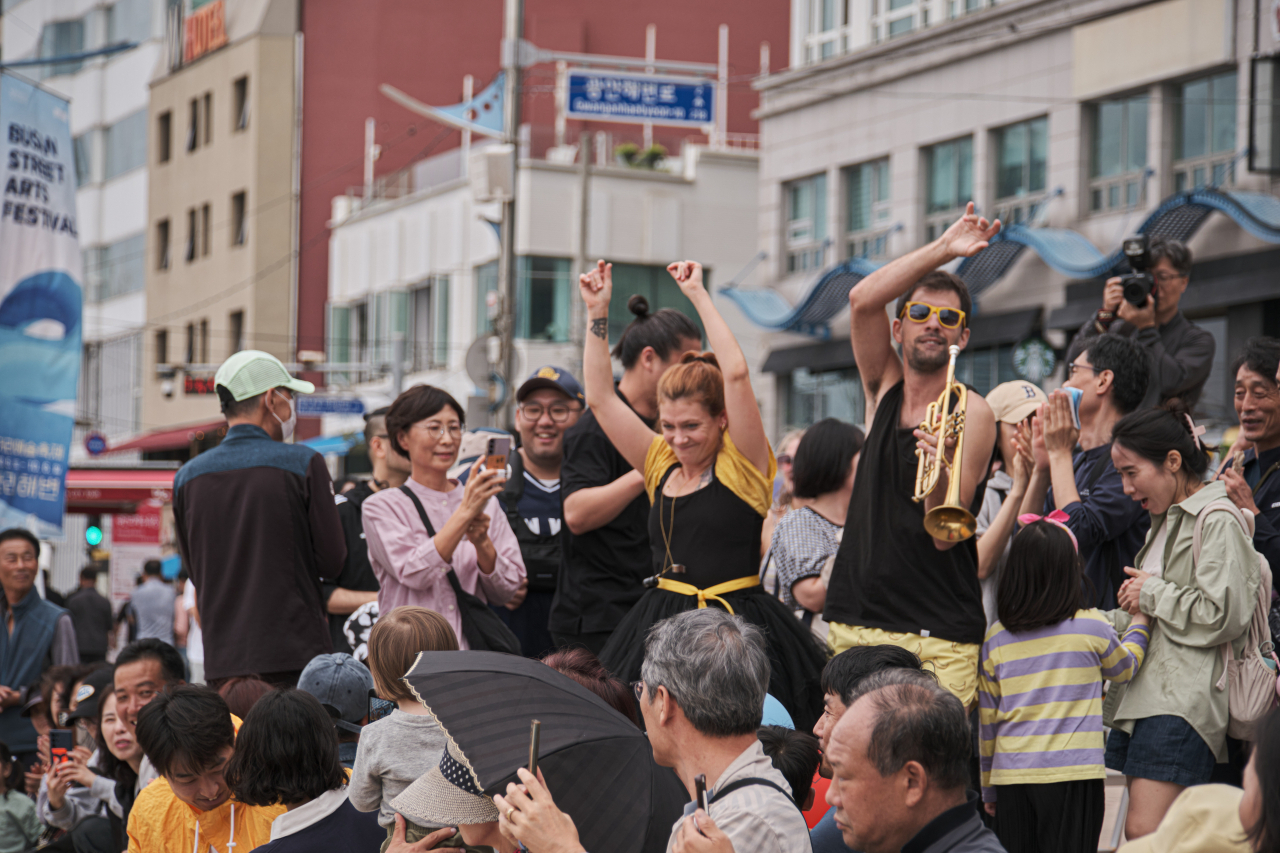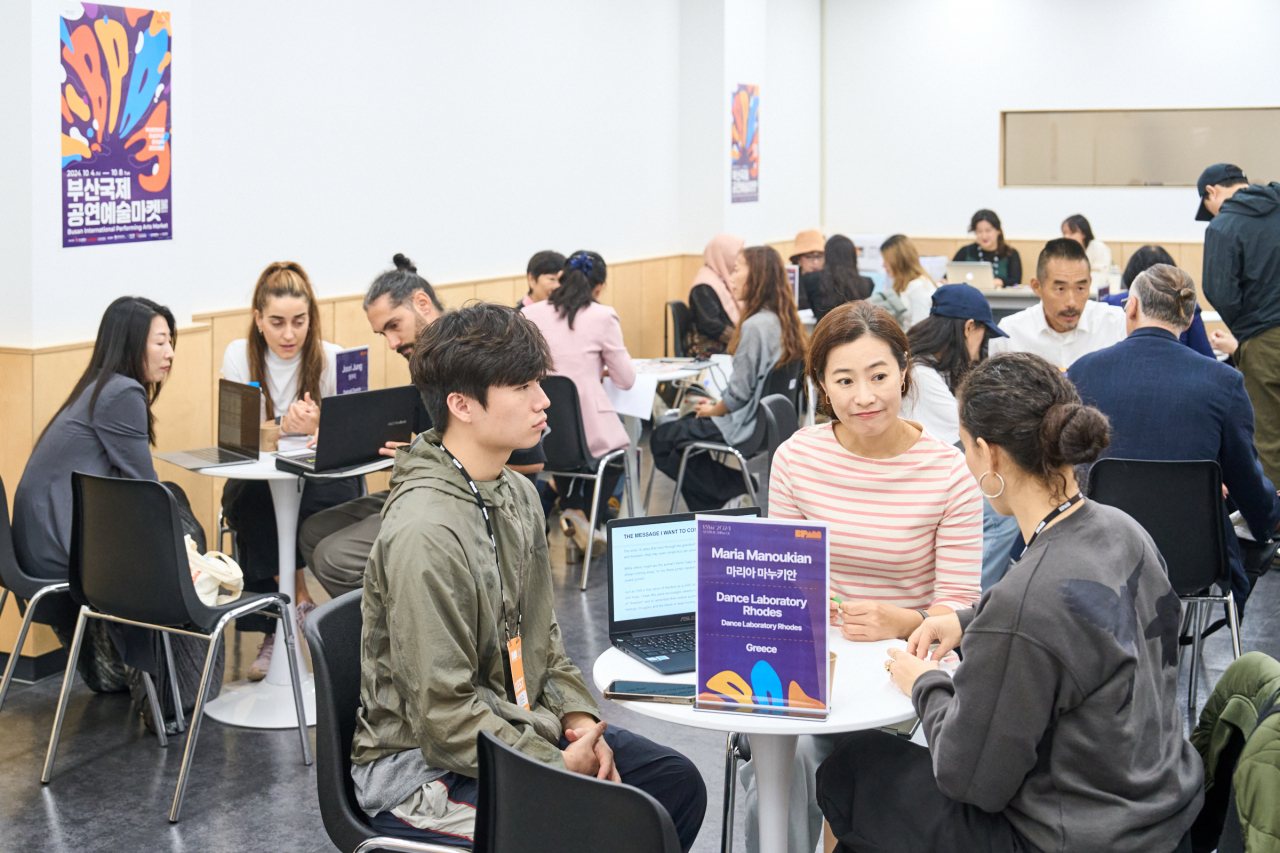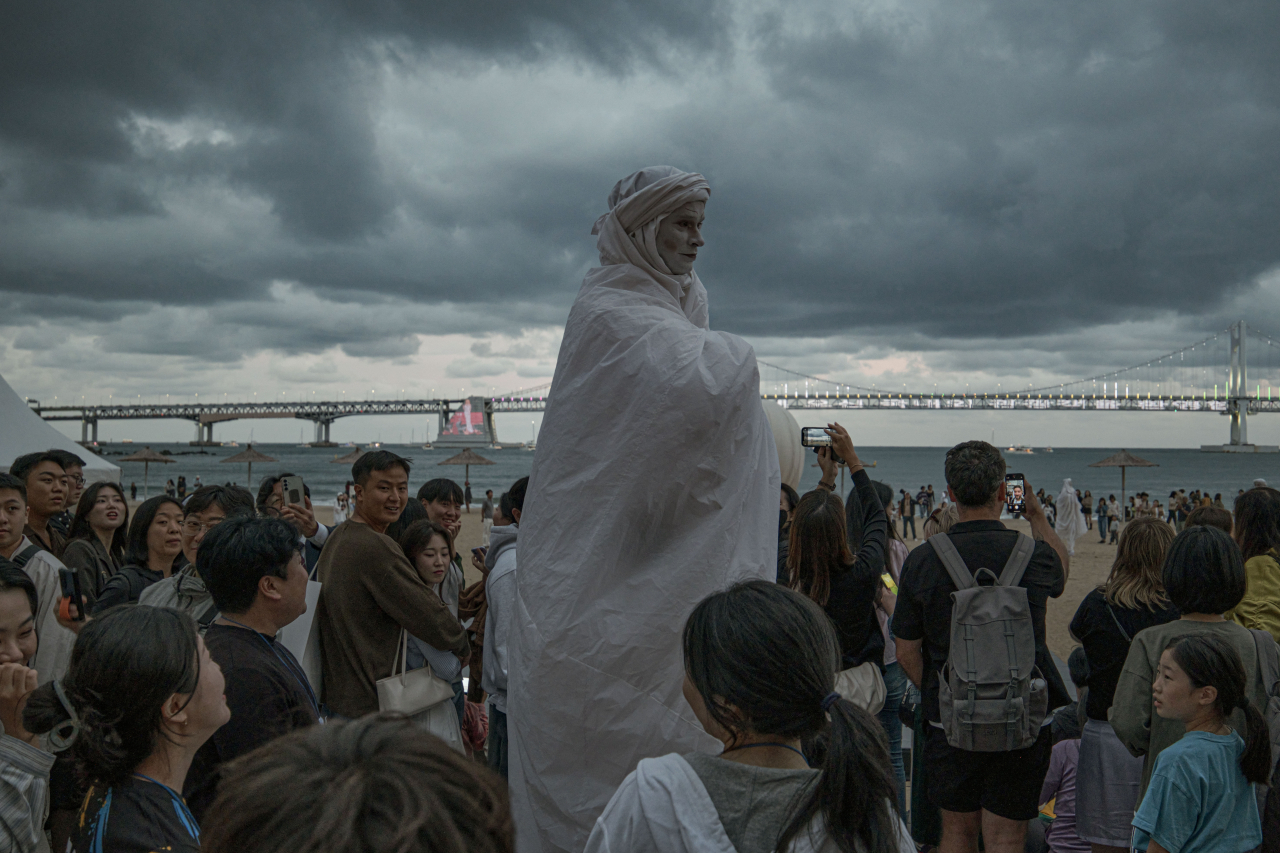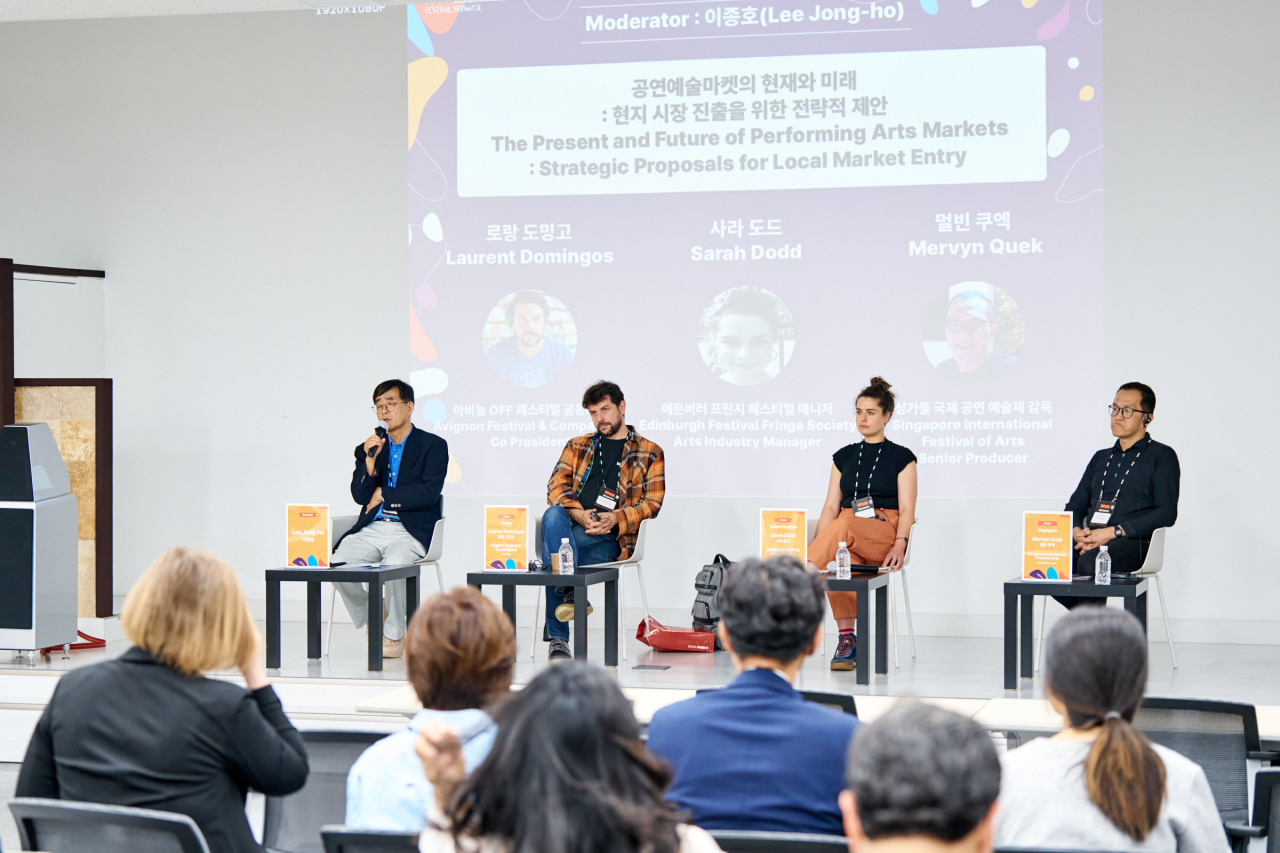
 > Entertainment > Music
> Entertainment > Music
 |
| Always Drinking Marching Band performs "The Street is Ours" at Gwangalli Beach on Sunday. (Busan Cultural Foundation) |
BUSAN -- The Busan International Performing Arts Market (BPAM) concluded its five-day run Tuesday in the southern harbor city. The marketplace, organized by the Busan Cultural Foundation, aims to facilitate the domestic and international distribution of various performance genres, including dance, theater, music and multidisciplinary art.
The event drew more than 300 industry professionals and 700 artists from 37 countries, including executives and programmers from major international festivals and performing arts venues, such as the Avignon Off Festival and the Edinburgh Festival Fringe.
Marking the second installment of the BPAM, its artistic director, Lee Jong-ho, remains undaunted. As a leading figure in international cultural exchange and the founder of the Seoul International Dance Festival in 1998, Lee has been at the market's helm as the artistic director since its establishment last year.
"After completing the first round, you become aware of the challenges and shortcomings, which makes you more cautious as you prepare for the second attempt," Lee told The Korea Herald on Friday after the opening ceremony.
“We faced many trials and errors but remained undaunted in our efforts. Despite these challenges, our vision and commitment remain steadfast. We aim to establish an international and global market for performing arts, extending beyond Busan, Korea and through Asia.”
 |
| Delegates and performing arts groups attend business meetings at BPAM on Saturday. (Busan Cultural Foundation) |
Busan in full swing for festival-style market
As a marketplace, the BPAM hosted booths, one-on-one business meetings for arts groups and delegates, informal nighttime gatherings and seminars on the future outlook and distribution of performing arts.
But the BPAM also embraced a festival-style marketplace approach, offering the public full-length performances selected by the artistic director and genre programmers and collaborating with the Busan Street Arts Festival.
With 40 officially invited performances at BPAM Next Stage to discover promising future talents, as well as street performances at Gwangalli Beach, the event featured around 200 performances -- either full-length or 20-minute highlight showcases -- at various venues across Busan, including the Busan Cultural Center, Kyungsung University and Cultural Alley in Nam-gu.
 |
| La Compagnie des Quidams performs "Herbert’s Dream" at Gwangalli Beach on Saturday. (Busan Cultural Foundation) |
"Recently, the boundary between festivals and arts markets has blurred. Busan International Performing Arts Market functions not only as a marketplace for industry professionals and artists but also as a festival which the residents of Busan can enjoy," Lee told The Korea Herald on Sunday.
On opening night, Quebec's Machine de Cirque performed the circus "La Galerie," with local audiences gathering to enjoy the show. France's La Compagnie des Quidams performed "Herbert’s Dream" at Gwangalli Beach on Saturday night, drawing a large crowd. Even during the showcase performances at Kyungsung University Concert Hall, where selected artists performed 15-20 minute segments, students and audiences freely came and went, enjoying the performances.
October in Busan is bustling with a variety of festivals. Events like the Busan International Film Festival in Haeundae, the Busan Biennale and "Festival Shiwol" (which means October in Korean) are all underway throughout the month.
 |
| From left, BPAM artistic director Lee Jong-ho; Laurent Domingos, co-president of the Avignon Off Festival; Sarah Dodd, manager of the Edinburgh Festival Fringe; and Mervyn Quek, senior producer of the Singapore International Festival of Arts attend a seminar during BPAM at the Busan Cultural Center on Saturday. (Busan Cultural Foundation) |
Present and future of performing arts markets
During a seminar held on Saturday, Laurent Domingos, co-president of the Avignon Off Festival, Sarah Dodd, manager of the Edinburgh Festival Fringe, and Mervyn Quek, senior producer of the Singapore International Festival of Arts, discussed the present and future of performing arts markets.
Avignon Off and Edinburgh Fringe, two of the world’s major performing arts festivals, adhere to an open-access format. Initially, only a small selection of curated performances was made, but over time, artists started coming to the cities independently to promote their work.
"It’s both a festival and a marketplace, where people not only exchange shows but also build networks and create new productions," said Domingos of the Avignon festival.
Last year, Harold David, the other co-president of Avignon Off, visited Busan as part of the French festival’s international initiatives.
"We believe it's very important to share culture from around the world, bringing not just Korean artists but performers from all over to France," added Domingos.
Dodd from the Edinburgh Fringe noted that the British festival has established relationships with the Edinburgh International Film Festival and the TV Festival to collaborate on projects involving major streaming services. It is also a place where film and entertainment studio heads come to discover new talents, Dodd said.








